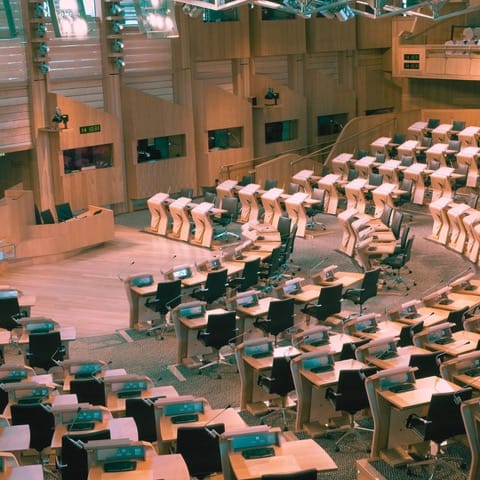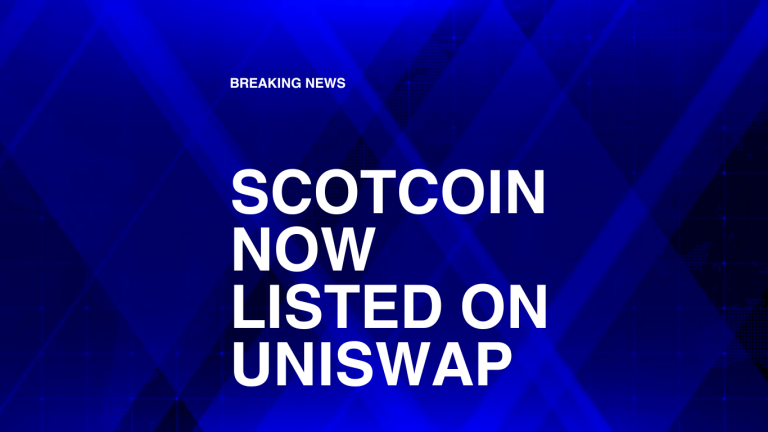
Robert McDowell is a long time supporter both personally and through Summerhall of Scotcoin. He is currently chairman of that renowned venue in Edinburgh, and a long time top level financier and economist. He has written a couple of pieces for us, this first one on the macro position we find ourselves in and the true scale of the credit crunch that is here now. The second piece is specifically on cryptos and will appear in a few days time.
Georgiova (IMF managing director) was recently quoted as saying “what we want is to guarantee that people are not going to die just because of lack of money“. How absurd can it get? Obviously not a Keynesian but a Monetarist supply sider.
It reminds me of the long since passed Airey Neave (who was Thatcher’s puppet-master until the IRA car-bombed his Jaguar in the House of Commons). He was an admirable person in many ways except he ordered HMT never to report to Cabinet the difference between public spending before & after tax rake-backs, a foolish neo-con rule insanely followed ever since. He was, decades earlier in WW2, nearly caught having escaped from Colditz (an officer class PoW castle) in Germany, heading for Switzerland. He was spotted in a railway station eating a chocolate bar (a Swiss Red Cross supplied one) when chocolate was something ordinary Germans could only dream of enjoying in 1941.
Chocolate then, money now. Lack of money? Lack of air or water? Maybe the IMF think money should be a natural resource (‘public good’) whenever there’s plenty of it? But what the crisis teaches us is that it is not quantity but velocity or circulation of money that gives it value. I shouldn’t wonder too if countless people die prematurely sometimes because they actually have too much money. But, today, asset values like cash are in free-fall and we cannot see any reasons yet for recovery!
Countries can largely shut down to ensure social isolation & social distancing, but it will become harder over time to guarantee basic necessities & essential services. The problem is that while clampdowns, prohibitions and the like, can be announced & enforced, the conditions for lifting restrictions & announcing a return to normal are deceptive & uncertain without a firm date (or time limit). Getting Brexit done clung fiercely to dates by when a make or break deal must be struck. No such iconoclasm is in evidence r.e. Covid-19 & the present anxiety/panic is deeply entrenched. It is so deep that there could be permanent changes in the patterns that have pertained of modern human social behaviour. There will be hard-to-calculate economic (& well-being) consequences.
It is funny how prepared everyone appears to be to be seen to tackle this pandemic with a cavalier disregard for the costs of unintended or unwanted consequences. The economic dislocation that currently appears unbounded appears unending, with arbitrary dates being bandied about. Suddenly, for example, the whole private sector is bleating for government support. These pleas come from those who normally condemn state interference or “tax & spend” almost unreservedly.
All places where crowds might congregate including pubs & cafes plus all live arts & sport are shutting or mothballing or reducing to a skeleton operation. Supermarkets or big shopping stores are not yet shutting, but they are subject to stockpiling, and panic-buying. Many are involuntarily closing. All non-essential travel for months will stop in an effort to try to postpone the spiking of the covid-19 virus.
It’s like thinking that prolonging a recession gets everyone cut back to essentially good & necessary fundamentals and behaviour – a puritanism in fact. It can backfire just like austerity. Those who railed against government austerity policy ain’t seen nothing like the austerity now coming fast down every one of our main streets.
A pandemic – like any defined thing of business – is assumed to be like a game where we are game-players. But games have agreed rules. Players all start with an equality – two factors almost totally missing in real world or real life events yet are demanded in a general crisis. Government must defend all equally, all businesses & all people. Fairness & equality ought to rule, though of course everything has unintended consequences. No good deed goes unpunished.
The pandemic is often likened to a lottery (even if only one of many such lotteries, many of which are much bigger) i.e. everyone has a remotely even chance of getting caught by it. My father often seriously joked there is good luck, bad luck, & luck out! (to be spoken in an Ulster brogue).
Funny how all presume equality of rights (first principle of citizenry) & everything connected thereto. Many of these same people extol inequality & dramatic change as creative destruction or simply good entrepreneurial spirit. But not any longer because they feel it is all someone else’s fault anyway or like the weather, if not the climate, inevitable. Human hypocrisy is now philosophical rationalism. It is limitless in its self-justifying sense of personal & or group entitlement.
The pandemic may be a lottery, but it has classes insofar as inequalities about who gets the worst & highest percentage risk of dying. I’m in the high risk category (retirement age & vulnerable upper respiratory tract). You too probably -no more pub visits!
Summerhall is closing down in events (e.g. 6 weddings in April-June) performances & catering (our main revenue). We will therefore have to reduce staffing to a skeleton crew at immense cost & may even find August festivals cancelled . That is a third of annual revenue! Various government compensations are mooted & insurance claims, but the fact is probably we will probably be unable to access any of these.
Jobs are being temporarily or permanently lost across all sectors given there are so many knock-on effects – a negative vortex. Leading bleaters craving government financial aid (didn’t work for FLYBE) are airlines, airports, and hotel groups. Credit demand on banks is increasing with depleting security for loans, probably with many new margin calls & higher risk rates. Cash & Gold are suddenly King as they frequently are!
Transport & tourism in particular, but general retail too, have all been massively hit. Worldwide, 50 million jobs in tourism/travel industry alone are expected to go i.e. 23%. Global unemployment was 205 millions (c.3 billions with jobs). We now foresee, even if temporarily in the short term (6 months- or more?), at least tripling of joblessness to over 15% of the global aggregate, & possibly another 10-20% may follow if the crisis persists for a year or more. No one knows.
The virus is triggering a major recession globally. Some felt a recession was imminent anyway, waiting only for the excuse to start, but this? Well, we know a normal recession squeezes everyone’s finances & wipes out (nominally in theory) at least 75% of banks’ reserves! Consumer culture is debt-fuelled, so the slowing of the velocity of money makes assets fall in value as well.
While good manufacturers can stockpile & hope to catch up in the eventual recovery rebound, trade lost to services tends to stay lost! A lot of financial firms are bound to go under for their inability to handle withdrawals & foreclosures.
There is a palpable Keynesian response (or at least a strong whiff of it) among governments in their budgetary jet streams. Whatever is blowing in & across central bankers’ rate-setting counters & balance sheet re-jigging has the same smell to it. Hence, the naff IMF statement we started with – much like politicians saying ‘we’ll do whatever it takes’ is necessary implying also “whatever the consequences” while having no idea what these might be.
UK budget deficit borrowing is mooted to hit 25% ofGDP i.e. a war-economy footing. Half of the government budget will be debt financed. That’s probably only sensible. But, off balance sheet or off-budget financial relief may, as in the 2007-9 GFC, prove even more effective.
An amusing aspect is the conspiracy theory that banks & the non bank finncial sector are capriciously unfettered in how they create new money out of loans. Now these same conspiracists must face the opposite – in other words asset value crashes. Generally markets have fallen in price by about a third so far but not yet touched bottom.
Worldwide stock market value was about $70 trillions in total. That’s now had a c.30% fall. Property ownership is reputedly about 60% of world assets or about $217 trillions (Savills Research 2016, of which $162tn is residential). In all likelihood, there is a 20% or higher fall there as well. The $217tn figure includes $145tn not available to be traded or not secured for debt. Hence, the active market amount is c.$70tn.
Commercial property – c. $53tn including land (according to Savills 50% of the world total is in USA, 28% Europe, 5% Latin America, ME & Africa, leaving only 17% in E, S, & SE Asia, which seems a bit implausible despite what we know of market pricing) What can such figures mean? If all ‘assets’ are c. 4 x world GDP & have fallen in price by 1 x world GDP so far this year, that is by about $1,000 per person in the world – man woman and child. Of course the loss of wealth is mostly concentrated in the world’s richest 25%.
That means about $60 trillions of wealth seems to have disappeared. Another $6 trillions of households’ & personal incomes may follow & at least half as much again in lower company profits & actual losses. The UK appears now exposed. Sterling fell this week sharply against both the USD & Euro (considered a safe haven for capital flight alongside CHF (Swiss Franc)). In March up to today, CHF/GBP went from 0.78 to 0.86 i.e. CHF up 10%. GBP/Euro went from 1.206 to 1.097 i.e. GBP down 9.9%. Those are big movements! They will have profound long term effects, not least fewer assets to support future development. Indeed, banks may need to ignore all the existing rules and conventions about loans
Officially the UK continues to enjoy a positive inflow of private foreign capital sufficient to finance the trade deficit without resource to extra government Gilts issues. But, underlying this since 2016 has been somewhere between £1 & £2 trillions of foreign disinvestment & UK capital flight. This is officially recorded in the UK’s net external balance (over £500 billion negative) i.e. about 20 years’ worth of net inflows recorded elsewhere by ONS in the balance of payments accounts.
There is something irreconcilable in these two data sets as there is also in the UK’s self-belief that financial services generate sizeable annual trade surpluses, when the UK’s top ten trading partners in financial services record surpluses against the UK. In truth it may not really matter. Why? Because in the UK, especially London & The City & their surrounding regions are simply far “too big to fail”! It remains to be seen whether we can take comfort in that statement.
Robert will be sharing his views on blockchain and crypto in the next article. We very much hope he will become a regular contributor to our project.






